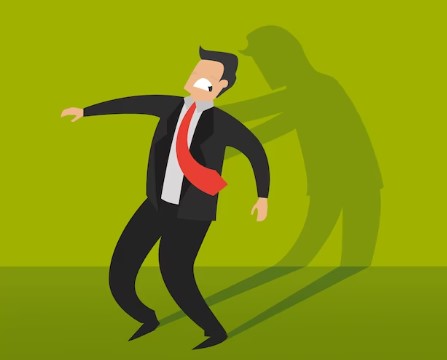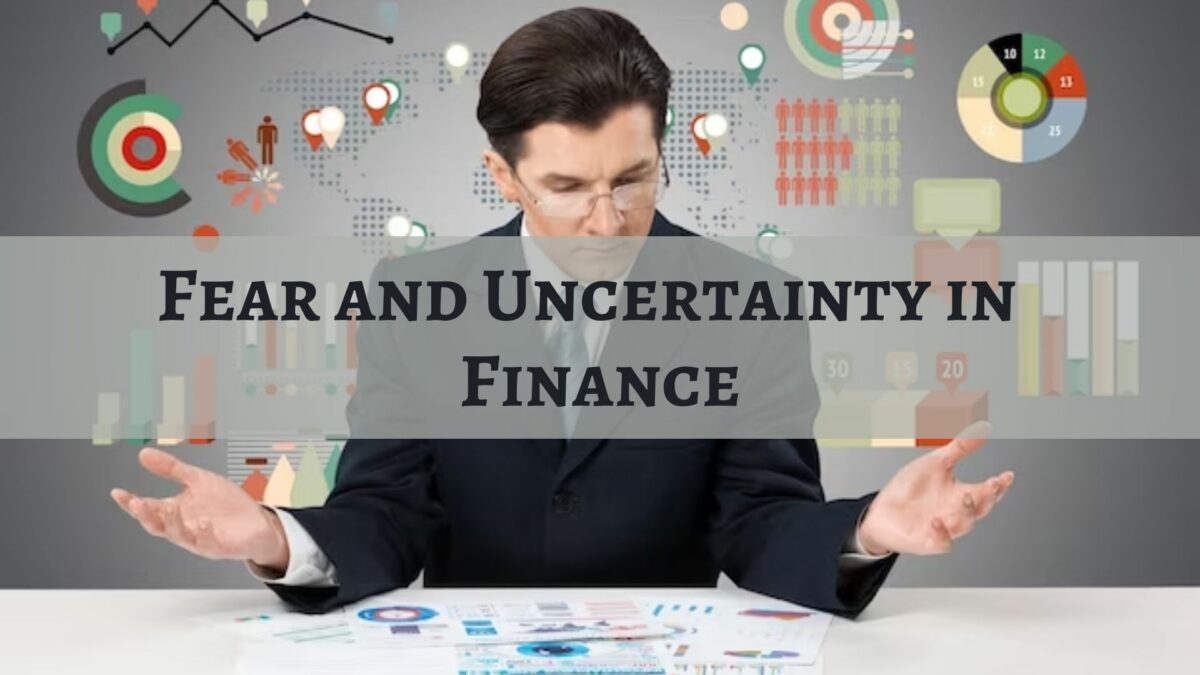“I fear the Greeks, even when they bring gifts.”
–Virgil
“I never think of the future – it comes soon enough.”
–Albert Einstein
It was January 3, 2005.
The first day that my co-founders and I started OpenSource Connections.
It was also my first day being unemployed, as I’d just left Capital One to start a new company.
I had no idea what would happen.
I was also nervous that nothing would happen.
I had fear.
I had uncertainty.
One was good. One was borne from the other and could either drive me on or paralyze me.
Uncertainty creates opportunity in markets. Fear creates a bunker mentality, where you only stuff money in a mattress, buy CDs, and get eaten alive by inflation.
How uncertainty creates opportunity

We put money in investments because we want the money to grow to be more money than it is today. If the investment was a sure thing, then everyone would invest in it, the price would go up, and the return on our investment would be zero. But, because we don’t know whether or not a price will go up, there’s risk in the investment, and since we’re taking a risk, we expect a return.
The higher the risk, the more return we want on our investment.
In a nutshell, that is investing in the markets.
But, that uncertainty plays out in other areas as well. If you’re buying a house, you’re going to be dealing with a seller who is uncertain whether or not the house will actually sell, or how much to truly offer. The seller is probably using a Realtor, who has a reasonable idea of what the price should be, but the fact is that neither party knows, with certainty, if and when the house will sell.
You can use that to your advantage by making an offer that provides certainty. Offer a lower price, but a quick closing date. Be pre-approved and pre-qualified for a mortgage, or, better yet, make it an all cash offer.
If you’re an entrepreneur, offer certainty to your customers. Dazzle them with your product or service. Deliver on time, or early. Be attentive. Listen. Don’t be so focused on getting the next customer that you leave your current customers wondering if they’re important to you. Find out where your competitors fall short and differentiate yourself by being exceptional in those areas. Provide ironclad guarantees and no questions asked refunds.
If you don’t know when you can retire, use that uncertainty to compel you to save more now. Act as if you might not have a job in a year from now and plan accordingly. Force yourself to sock money away. Don’t act as if you’re in a cushy government job with guaranteed income for life (unless you are). That uncertainty can be a motivator to change your habits now, to spend money on what’s important to you, and to drive you to PIRE more quickly.
Uncertainty, though, is a quick ride down to its more nefarious cousin, fear.
Let me illustrate this with a personal example.
A little over six years after that fateful startup birthday, we had an offer on the table to buy our company. It was a reasonably priced offer, with a significant equity earnout component.
The country was still recovering from the recession, and I was simply uncertain about the shelf life of our little company. Things were going well, and we’d survived the recession, and even grown our top and bottom line numbers during it, but as with any entrepreneur, there was a little seed of doubt as to how long the ride would last.
I was ready to take some risk off of the table and cash in.
My partner was not.
I had let fear creep into the equation. I was already thinking in terms of loss regret and loss aversion. Monkey Brain, my limbic system, was conjuring up images in my head. What if we turned down the offer, and then the company lost all of its customers and we had to shut down? Then, I’d be sorry.
We came up with a compromise.
He would buy me down to a minority share, allowing me to keep some stake in the company while taking money off the table and allowing us to achieve financial independence.
He became the new owner of most of my shares.
Two and a half years later, the company has grown to be worth three times what it was when I accepted my buydown offer.
While I don’t regret my decision, I do admit that fear caused me to sell at a lower price than I probably could have received a year or two down the road.
How else does fear stop us in our tracks?

Fear, in its worst incarnation in our lives, prevents us from taking action. We instead look for more and more answers while never taking action. Or we accept bad deals because they’re better than no deal at all.
Here’s how fear can smite our personal finances:
- Accepting lowball offers. If you’re selling a house, then chances are reasonable that, at some point, you’ll get a lowball offer from an investor who is trying to get a property on the cheap. There will be some temptation to accept the offer because it is an offer. Monkey Brain will see the money in the bank and start telling you stories. Don’t give in to loss and regret aversion and accept an offer just because you have one.
- Taking a job that’s a bad fit. If you’ve been out of a job for any period of time, particularly if you didn’t choose to leave it, you’re facing heavy uncertainty. When will you get the next job? How much longer can you make it before the money runs out? Will you need to do something drastic to keep food on the table? At that point, you can start to let fear creep in and to allow yourself to take a job that is not a good fit for you because it is a job. While that might solve a short-term problem, you’re not going to do well in that job, and you’ll either leave and not have good references after you leave, or you’ll be shown the door. Neither is going to be good for your long-term career prospects. You’re better off waiting the uncertainty out to find a job where you truly can succeed and do well than to take one that is not a great fit and trying to make do.
- Overinvested in highly conservative investments. I see this often with people who are either completely out of the market or heavily into bonds. They don’t want to lose money. The problem with this approach is that, while they might not lose money, they will, over time, lose spending power. They won’t necessarily see the loss on their statements, but they will see the loss when they have to withdraw more and more money to buy the same things. In investments, you need to beat inflation over time to have a good chance of not running out of money before you run out of heartbeats.
- Not starting that side gig. Jobs offer a façade and a modicum of security. Starting your own business does not. You could give it a go, do everything right, and still wind up out of business in a year. If you’re planning for failure, though, you should never start. Instead, prepare contingencies if you do not succeed and then plan to succeed so that you never need to implement those contingencies.
Uncertainty can be your friend. You can use other people’s fear of uncertainty to create opportunities in your life. However, if you start slipping into fear yourself, then you can become paralyzed and never make progress.
How you choose to treat uncertainty is up to you.
Uncertainty or fear? Which one is dominant in your life? How do you fight fear? Let’s talk about it in the comments below!
Author Profile
- John Davis is a nationally recognized expert on credit reporting, credit scoring, and identity theft. He has written four books about his expertise in the field and has been featured extensively in numerous media outlets such as The Wall Street Journal, The Washington Post, CNN, CBS News, CNBC, Fox Business, and many more. With over 20 years of experience helping consumers understand their credit and identity protection rights, John is passionate about empowering people to take control of their finances. He works with financial institutions to develop consumer-friendly policies that promote financial literacy and responsible borrowing habits.
Latest entries
 Low Income GrantsSeptember 25, 2023How to Get a Free Government Phone: A Step-by-Step Guide
Low Income GrantsSeptember 25, 2023How to Get a Free Government Phone: A Step-by-Step Guide Low Income GrantsSeptember 25, 2023Dental Charities That Help With Dental Costs
Low Income GrantsSeptember 25, 2023Dental Charities That Help With Dental Costs Low Income GrantsSeptember 25, 2023Low-Cost Hearing Aids for Seniors: A Comprehensive Guide
Low Income GrantsSeptember 25, 2023Low-Cost Hearing Aids for Seniors: A Comprehensive Guide Low Income GrantsSeptember 25, 2023Second Chance Apartments that Accept Evictions: A Comprehensive Guide
Low Income GrantsSeptember 25, 2023Second Chance Apartments that Accept Evictions: A Comprehensive Guide

